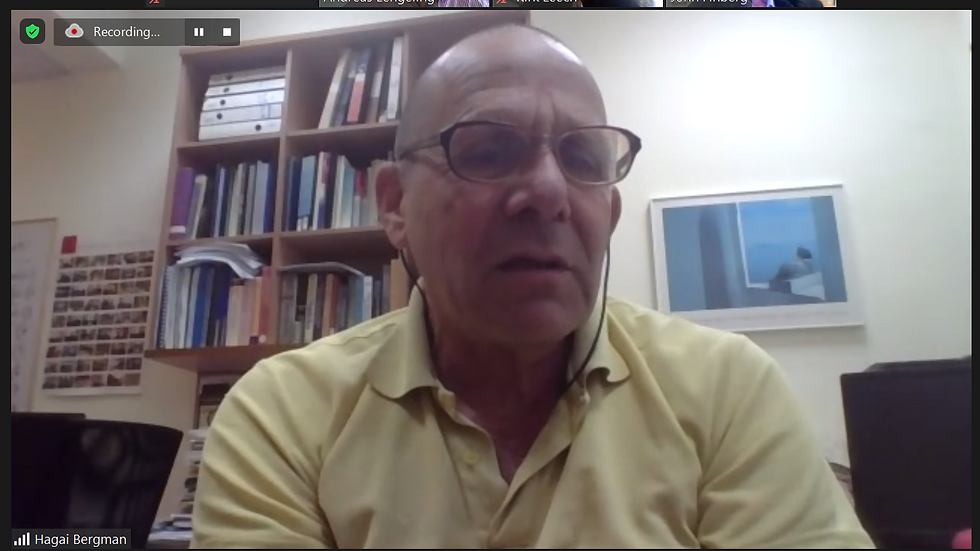
In the latest in the series of openness events across Europe, EARA held a discussion with institutions in Israel about the importance of transparency.
Improving Openness in Animal Research in Israel, the online event, was supported by the Federation of European Neuroscience Societies (FENS) and the Society for Neuroscience (SfN). Over 70 attendees were part of the online webinar, held in collaboration with EARA member, the Inter-University Forum for Biomedical Research Israel, who heard examples from leading researchers and communicators about ways in which we can improve communication about animal research.
The event was moderated by Professor John Finberg, professor emeritus of Technion, who began by sharing his enthusiasm for the aims of the meeting and the discussions that it would start in Israel.
First to speak was EARA Executive Director Kirk Leech, who outlined how animal activists have changed their tactics over the last few years, moving away from the violent protests of the past to more peaceful, campaigning tactics such as influencing animal research policy.

“Increasingly, activist groups are focusing much of their attention on the European Commission”, said Kirk, as he discussed the work that EARA is undertaking to provide a voice for biomedical researchers in opposition to this.
Kirk also shared some of the initiatives that EARA is leading to help researchers communicate their work with the public through social media. The Instagram initiative, #TransparencyThursday (pictured above), has now featured nine European scientists, five of whom were neuroscientists, and been viewed on Instagram and YouTube close to 1,000 times.
Attendees then heard from Professor Hagai Bergman, from EARA member, The Hebrew University of Jerusalem, who shared examples of how he had communicated his neuroscience research using mice and primates with the media and wider public.
"Sunlight is the best disinfectant" he said, stressing that transparency was the best way to improve both the quality and understanding of science and biomedical research.
Dr Andreas Lengeling, of the Max Planck Society (MPS) Germany, then shared his examples of how MPS had taken an institutional approach to openness. In response to a crisis communication situation it had reformed its website and taken a proactive approach to openness, including publication of a white paper offering guidelines on transparency.
“We need to remember the 4th R – responsibility,” he said, encouraging researchers to take action in their communication about the animal research that goes on at their institutions.

Dr Lengeling also shared images of engagement initiatives that the Max Planck Institute for Evolutionary Biology has undertaken, offering members of the public and school groups tours of teaching facilities and gain a better view of how animals are housed.
The event concluded with a panel discussion, featuring much discussion about non-technical summaries and their use for communicating animal research to the wider public. Although not yet a requirement in Israel, the panellists also stressed their support for implementation of non-technical summaries to be supplied with all research projects.
The panel were asked who should be responsible for communicating animal research. Professor Bergman stressed the need for researchers to be involved in communication, lending confidence to the narrative.

“If people are listening to me, then I think they will trust me more than if I sent someone to fight for me,” he said.
Dr Lengeling added: “We have a moral obligation to show how basic and fundamental research has led to paradigm change,” he said, while reminding attendees that the public enjoys hearing how new discoveries are made.
“There is enough good practice now to learn from and show a more open response to animal research” Kirk concluded, inspiring attendees to take up some of the examples shared during the meeting.
